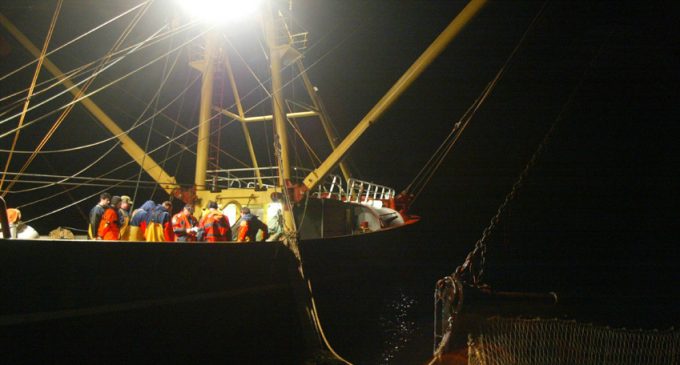New EU Agreement on Working Conditions in Fisheries

Representatives of the European Union’s employers and trade unions in the sea fisheries sector have signed an agreement to ensure that fishermen have decent working conditions on board fishing vessels with regard to minimum requirements for conditions of service, accommodation and food, occupational safety and health protection, medical care, and social security. This agreement implements at EU level the International Labour Organisation (ILO) Convention on ‘Work in the fishing sector’.
This agreement confirms the EU’s commitment to improving the working conditions of fishermen both in Europe and globally. The EU social partners intend to ask the Commission to present their Agreement to the EU’s Council of Ministers in order to implement it through an EU Directive, in accordance with Article 155 of the Treaty on the Functioning of the EU, and so make the rules legally binding in the EU and enable speedier ratification of the ILO Convention.
Globalisation has had a profound impact on the fishing sector and the rights of fishermen need to be promoted and protected. The risk of an accident causing an injury or death is 2.4 times greater in the sea fisheries sector than the average of all EU industries. The fishing industry accounts for 7% of all fatalities at work in the world, even though, with 355,000 people working in fisheries, it accounts for less than 0.2% of the EU workforce. The fishing sector is a major source of jobs in some Member States (Greece 1.5%) and regions (eg Galicia, Spain 3%) or coastal communities (eg Killybegs, Ireland 68%).
The EU Treaty gives the EU social partners the power to request that an agreement signed by them becomes EU law through a Council Decision and thus become legally binding for all EU Member States. This agreement will not only reinforce implementation of the ILO Convention but also pave the way for its full ratification by EU Member States by the end of 2012, so that the Convention can enter into force worldwide in 2013.
The agreement follows negotiations between European social partners in the sea fisheries sector (Europeche- COGECA representing employers and the European Transport Workers Federation employee) launched in 2010. Both national and EU legislation need to be adopted to ratify the Convention.
Having the legal framework in place is only the first step. The EU Member States need to ensure – through controls and inspections – that the rules are complied with. This clearly applies not only to fishing vessels flying a flag of an EU Member State, but also to vessels flying a flag of states that have not ratified the Convention, when they call at an EU port.
The Commission will help the Member States to perform their duties. Moreover, the European Fisheries Fund and, as of 2014, the European Maritime and Fisheries Fund, will financially assist the fishing industry to improve safety on board vessels and for the workers to attend specific training courses.
A recent study of 24 coastal communities in Europe has shown that fleets have increasing difficulties to complete crews with local, well qualified people and have to resort to non-EU nationals and – in small scale fleets – use workers that continue working beyond the legal retirement age. The study shows that fishing is simply not an attractive career prospect. Declining catches – and therefore uncertain prospects – and relatively low wages are only partly to blame. Safety concerns and difficult working conditions aboard fishing vessels are another part of the problem.

































